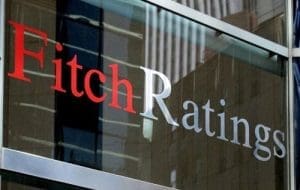Inflation set to drop sharply again in June

Ghana’s inflation rate is expected to decline significantly in June 2025, reaching 16.0%, according to a forecast by IC Research.
This anticipated drop represents a 240 basis point decline from May’s annual rate of 18.4%, and reflects the fifth consecutive month of inflation deceleration in 2025.
IC Research attributes this latest disinflationary momentum to a combination of favourable foreign exchange dynamics, reduced energy prices, and the recent 15% cut in commercial transport fares.
Strong Cedi bolsters disinflation
At the heart of the inflation slowdown is the cedi’s remarkable appreciation during the June 2025 Consumer Price Index (CPI) window.
The local currency recorded a 29.5% month-on-month and 35.3% year-on-year gain against the US dollar.
This has led to marked declines in the prices of imported goods, particularly petroleum products, and helped lower costs across multiple sectors.
According to the report, “The appreciation of the cedi exerted downward pressure on prices of imported items, with notable declines in petroleum prices and transport fares.
The announced 15.0% reduction in commercial transport fares will continue to restrain transport inflation with downside spillovers for other items.”
The stronger cedi has also reversed recent energy price increases, prompting what analysts describe as a domino effect in taming broader price growth.
Food disinflation strengthens
Food inflation continued its downward trend in May 2025, driven primarily by a favourable base effect in the heavily weighted CPI component for vegetables and tubers.
Year-on-year, food inflation dropped by 220 basis points to 22.8%, despite seasonal pressures from the planting period.
Inflation for vegetables and tubers alone plunged by 10.3 percentage points to 24.0%, although the month-on-month rate in this category rose to 2.4% due to temporary supply limitations during the farming season.
IC Research projects that the continued easing of transport costs in June will help dampen inflationary pressure on perishable food items like vegetables and tubers.
This, in turn, will contribute to sustained food disinflation in the coming months.
Non-food inflation dives amid energy relief
The decline in inflation was even more pronounced in the non-food category.
Year-on-year, non-food inflation fell by 350 basis points to 14.4% in May—marking the seventh straight month of decline.
IC Research notes that price drops were observed across 10 out of 12 divisions of non-food inflation.
A standout contributor to this decline was the transport sector, where inflation nosedived by 11.8 percentage points to 3.1% year-on-year.
This plunge in transport inflation was largely attributed to the cedi’s appreciation and the consequent reversal in energy prices, which helped cool prices in other sectors as well.
Year-to-date inflation down by 540 basis points
The cumulative effect of Ghana’s disinflation in 2025 is striking. Headline inflation has dropped by 540 basis points from January to May 2025.
By comparison, the same period in 2024 saw a negligible dip of just 10 basis points, reflecting the strength and consistency of this year’s downward trend.
IC Research concludes that this faster pace of disinflation reflects a combination of a strong base effect, foreign exchange pass-through, and softening petroleum prices, all of which are now working in tandem to stabilise prices across the Ghanaian economy.


